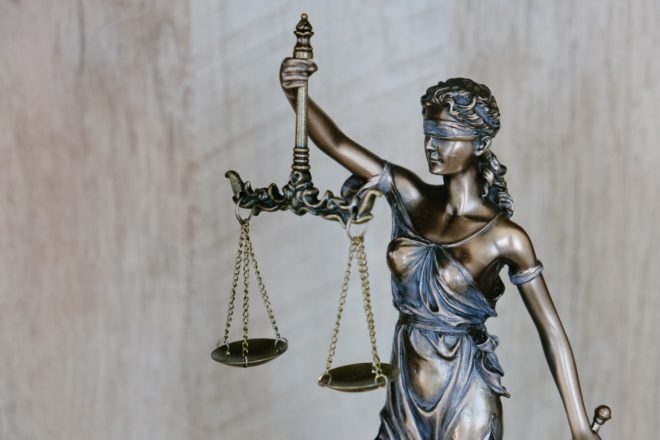9 Signs Your Hotel Website Could Land You in Legal Hot Water

You may be creating a new website for your hotel, or perhaps you already have one. Either way, do you know if it follows all legal guidelines? This article is an important read if you haven’t dotted all your i’s and crossed all your t’s.
Let’s look at nine signs your hotel website could land you in legal hot water.
#1: You Have Intellectual Property Issues
According to the University of Pittsburgh, “intellectual property refers to any intellectual creation, such as literary works, artistic works, inventions, designs, symbols, names, images, computer code, etc.”
There are laws on the books regarding intellectual property that are put in place to protect content creators. This affects patents, copyrights, trademarks, and inventions.
If a court finds you guilty of intellectual property infringement, you may end up owing millions of dollars.
Therefore, it’s crucial that your website doesn’t violate anyone else’s intellectual property. The last thing you want to lose is your hotel website and your booking portal.
Let’s look at a few of those individual intellectual property issues.
#2: You Haven’t Paid Attention to Copyrights
Copyrights are part of intellectual property rights. Your hotel website is full of imagery, video, and text content. It’s important that everything on your website is yours and that you didn’t take it off the web to use as your own.
A copyright infringement happens when you reproduce or copy someone else’s work. For example, if you found an image when searching Google and decided to use it on your website, you might infringe on someone else’s copyright. As a result, you would be liable and may have to pay a lot of money to get out of trouble.
The best thing you can do to avoid copyright issues is to:
- Hire a photographer or take your own photos.
- Design your own graphics.
- Write your own copy.
- Use a stock photo or video program that you pay for. This gives you the right to use their photos and videos.
Don’t ever steal someone else’s photos or videos. The same goes for text content.
#3: You Haven’t Paid Attention to Trademarks
Trademarks are another intellectual property issue.
What is a trademark? It’s generally part of someone’s brand. It might be an image, a slogan, or even just a word.
The trademark problems come in if you are using part of someone else’s brand which creates confusion for the public.
If you are creating your own logo or slogan, be sure it doesn’t infringe on someone else. Hire someone to create your logo, and then do some research to make sure yours is genuinely original.
You can then trademark your own logo and protect it.
#4: You Don’t Have Any Website Disclaimers
You should have a disclaimer on your hotel website. This means you post something that describes the limitations of your liability for people who are using your website and viewing the information on it.
While a disclaimer doesn’t absolve you from all liability, you leave yourself open for large issues if you don’t have one.
A disclaimer on your website helps protect you from a web viewers who may claim that your website harmed them or kept them from something based on the information you provided on your website. Your disclaimer can help prevent this.
Your disclaimer may also tell your website visitors that while you update your website, there may be times when it’s not, and you’re not liable for changes.
Have your lawyer help you with your website disclaimer to ensure it is worded correctly.

#5: You’ve Defamed Another Hotel
According to thefire.org, says defamation lawsuits are on the rise. This should be worrisome for all hotel owners.
You don’t want to be accused of making something up about one of your competitors or defaming them. This includes both libel as well as slander.
If someone accuses you of defamation, it may be because you made a false statement about a competitor or even some who stayed at your hotel.
Your website could land in legal hot water if you defame someone on your website, your blog, and even your social media. If what you said is false, you could get in great trouble.
To keep yourself out of hot water, just make sure you don’t defame anyone on your website. If any of your employees are posting on your website, make sure they are trained to avoid this at all costs.
#6: You Don’t Have a Privacy Policy
If you collect information from people on your website, you need a privacy policy. In most instances, you do because you are taking reservations on your website. You might also be running Facebook and Google ads, and if so, you also need a privacy policy. (tweet this)
You don’t want to skip this step as it’s important to keep you out of hot water. It’s relatively easy to create a privacy policy as you can find generators online.
Your privacy policy should include the following:
- Explanation of the information you gather from your website visitors (for example, this might be name, phone, email, credit card, info, etc.).
- An explanation of what you will do with your website visitors information.
- How you gather information from your customers.
- An explanation stating how you will protect your website user’s information for example how you will store it.
- A detailed explanation of how you use cookies on your website.
- Other information as needed.
If you don’t include a privacy policy on your website, you might violate both state and federal privacy laws. The results of not including a policy on your hotel website can be quite severe.
Again, consult your attorney when setting up your privacy policy.
#7: You Don’t Have a Terms and Conditions Page
While it’s not vital that you include a terms and conditions page, it can help you in the long run if you have one.
This page helps limit your liability and keep you out of legal hot water.
A terms and conditions page is essentially a contract between your website and the visitors who land on your hotel website. It tells people what you will do on your website and the conditions of it.
This is another instance to involve your hotel’s lawyer.
#8: You Don’t Have a Cookie Policy
Cookies are that banner that pops up on your website and asks users for permissions.
A cookie personalizes a website visitor’s browsing experience and thus collects information from web viewers. While cookies aren’t mandated in the United States, they are in other countries.
If you want to be as transparent as possible with your website and stay out of legal hot water, it’s a good idea to include a cookie policy.
#9: Your Website Isn’t Accessible
The final thing we want to look at is website accessibility.
You want to make sure your site is accessible to all people, including those with disabilities and hearing and sight problems.
The Americans with Disabilities Act does pertain to the internet as well as in-person physical spaces.
Final Thoughts
Now that you know the nine signs your hotel website could land you in legal hot water, you’re ready to either fix your current website, upgrade it, or build a new one.
There are risks in the digital arena, and by taking some of the steps outlined here, you can limit your risk.
As you do these things, you’ll also improve your website and make it better for your customers!
We are your hotel’s digital advertising specialists and can help you position your hotel for success and attract repeat guests to your inn. As experts in website design, we can create a new website that works seamlessly with your social media. And we can also help with search engine marketing, online booking, online listings, and social media marketing, we are here to help. Contact us today to start a conversation about your digital advertising needs.
Image: Tingey Injury Law Firm and John Schnobrich on Unsplash
Free Hotel Website Checklist
5 Essential tips for using your website to book more guests! Plus, a Free email course, Winning Web Strategies For Innkeepers.